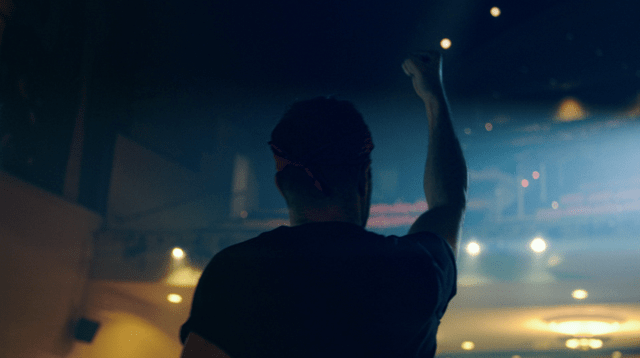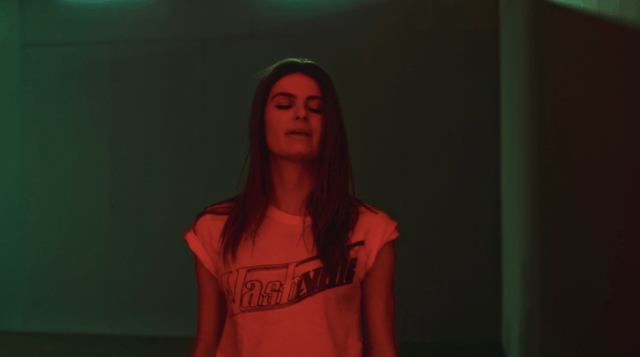While many artists are categorized and placed within the confines of labels like “jazz musician”, “action star”, and others, those who work behind the camera often have the ability to utilize their skills without these restrictions; the only requirement is an exceptional talent. Possessing this very ingredient has allowed colorist Keyhan Bayegan to work with some of the world’s leading professionals in platforms that included feature films, cable series, short films, streaming platforms, and web-based content.
For someone like Keyhan, the opportunities are seemingly endless, due in no small part to his ability to bring something special to every production he is a part of. His resume spans Grammy-nominated musicians (Galantis) to Oscar-nominated films (Star Wars: Episode IX-The Rise of Skywalker) to the works of the lesser-known new generation of artists but the signature trait of exceptionalism on Keyhan’s part is a vital part of every project with which he’s involved. The saying goes that there are no small parts, only small actors; Bayegan proves this to be as true behind the camera as in front of it.

Galantis is a Swedish band/duo comprised of Christian Karlsson and Linus Eklow. The group’s full-length release Church featured the song “Never Felt a love like this”, the video for which was directed by Dano Cerny. As an international success nominated for awards from the Grammys, International Dance Music Awards, MTV Europe Music Awards, and others, Galantis has achieved a status that enables them to collaborate with artists who are premier in both their talent and creativity.
This accurately describes both Cerny and Bayegan who worked together on the music video for “Never Felt a love like this.” The basis for the video was fairly direct; different actors were filmed auditioning for a part in the video without the knowledge that their auditions would actually become the story of the video. The entirety of this takes place on a single theater stage.
While this tactic might present the danger of being static or plain, Keyhan perceived the possibilities describing, “The stage lighting was fairly simple, it was a mono-directional light coming from downstage to upstage. I had to maintain the same yellow-orange tone that Dano wanted but I also wanted to keep the shots alternating between different mini looks.

I played with the tones and contrasts to sometimes make an image brighter or darker than what it originally was and match it with the sound that I got from the editor. At the climax of the music video when the BPM goes higher and the production started using color lights, I kept the same direction and amplified it to make it more colorful and diverse.
The production had one cinema camera for upstage shots and multiple GoPro and DSLR cameras downstage. In the low light scene, it was tough to match all of these. At the same time, I wanted to add something to them so the shots could become something more than what they were supposed to be. By adding contours and different shapes I basically recreated certain visual effects from narrow sources of light on stage to make it look more theatrical.”
Nearly a century as one of the world’s leading voices in fashion, beauty, and culture has established Vogue as an icon. Even if you’re not in the magazine’s target demographic, you know the name Vogue and instantly have a visual in mind of what it represents. Along with the rest of the publishing world, Vogue has increasingly embraced connectivity with its audience through online productions.
“Diary of a Model” is a series of videos that follow the world’s most famous in the industry. Keyhan has collaborated with director Talia Collis on a number of these productions including those featuring Sara Grace, Meghan Roche, and Isabeli Fontana. Generating millions of views, the “Diary of a Model” projects are vital in procuring and establishing an increasing audience for Vogue. The tone of Keyhan’s work illustrates the link between traditional and new media as he relates, “Talia has a very specific vocabulary when it comes to colors and skin tones.
She didn’t want anything saturated but was worried about skin tones looking dull. I also had to maintain a natural look of the model that people are used to from watching other ads and social media posts. Isabeli Fontana has a strong and charismatic personality which Talia asked me to translate through colors. There were scenes in the piece that could use a strong color palette, like when Isabeli is practicing her runway walk.
The environment was lit with a bright red color but I decided to make it look dark and moody when Isabeli is practicing while sharing secrets to her success with the audience. I got to see Isabeli in action and her message about her life growing up and fighting for things she wanted to boost my confidence as well! It’s fun when the work keeps talking to us as we are making changes to it.”
Writer: Cecil McCoy